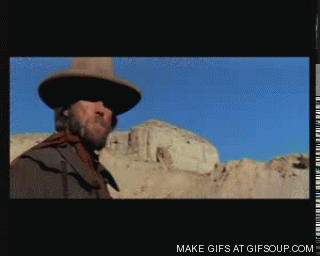In my opinion the thing that prices out the little guy is loss of access to game, big and small in their own back yard.
I graduated high school in 1980 and have an uncut resident elk tag from that year that cost $8. We lived in a 2 bedroom house that we rented for $200 per month in 1978.
My mom and dad purchased a low end 2 bedroom house in town in 1979 for $15,000.
I went to work for the local sawmill the summer of 1980 and started at $7.10 per hour with full benefits.
Sooooooo. 1 hour pay would just about buy an elk tag. 1 year gross pay would buy my parent's house. Health insurance was free with my job. There were elk and mule deer on public land in the mountains. We shot gophers on the weekends. WE put in for goat tags and drew them. We fronted the money it was $25.
Today starting wage is about 12 bucks an hour at the sawmill. Some of the guys that I worked with when I left still work there and make about 15 to 16 dollars an hour.
1 year gross pay is a down payment on the same house which is worth about $250,000 to $280,000.
Rent on the same house is about $1,100 to $1,200. Rent is about 100 hours pay per month, where it was 28 hours pay in 1980. The sawmill job is still a competitive wage for this town.
Soooooo. The NA model is absolutely doomed, not because the $20 dollars is too much for an elk tag but because that kid just out of high school doesn't have enough money to get to the mountain, which has 10% of the accessible game on it that it did in 1980. When he goes to apply for a permit he has 1 chance where the oldsters have 400. His odds are ridiculously poor.
On the weekend this kid can't even find a place to shoot gophers and if he could he can't buy a 22 shell. He does not give money to conservation, and he thinks $20 for an elk tag is enough.
Soooooooo. We sell out our principles and auction a few tags to the highest bidder. We go along with absurd point schemes. We look to the non resident to foot the bill for us. We accept poor game management. We lease hunting ground with more game. We apply for permits in other states.
There is an all out assault on the NA model in the legislature. The kid doesn't know it. When the NAM goes the way of the dodo bird the kid won't mourn it. He never knew what it was. He was born too late.
I graduated high school in 1980 and have an uncut resident elk tag from that year that cost $8. We lived in a 2 bedroom house that we rented for $200 per month in 1978.
My mom and dad purchased a low end 2 bedroom house in town in 1979 for $15,000.
I went to work for the local sawmill the summer of 1980 and started at $7.10 per hour with full benefits.
Sooooooo. 1 hour pay would just about buy an elk tag. 1 year gross pay would buy my parent's house. Health insurance was free with my job. There were elk and mule deer on public land in the mountains. We shot gophers on the weekends. WE put in for goat tags and drew them. We fronted the money it was $25.
Today starting wage is about 12 bucks an hour at the sawmill. Some of the guys that I worked with when I left still work there and make about 15 to 16 dollars an hour.
1 year gross pay is a down payment on the same house which is worth about $250,000 to $280,000.
Rent on the same house is about $1,100 to $1,200. Rent is about 100 hours pay per month, where it was 28 hours pay in 1980. The sawmill job is still a competitive wage for this town.
Soooooo. The NA model is absolutely doomed, not because the $20 dollars is too much for an elk tag but because that kid just out of high school doesn't have enough money to get to the mountain, which has 10% of the accessible game on it that it did in 1980. When he goes to apply for a permit he has 1 chance where the oldsters have 400. His odds are ridiculously poor.
On the weekend this kid can't even find a place to shoot gophers and if he could he can't buy a 22 shell. He does not give money to conservation, and he thinks $20 for an elk tag is enough.
Soooooooo. We sell out our principles and auction a few tags to the highest bidder. We go along with absurd point schemes. We look to the non resident to foot the bill for us. We accept poor game management. We lease hunting ground with more game. We apply for permits in other states.
There is an all out assault on the NA model in the legislature. The kid doesn't know it. When the NAM goes the way of the dodo bird the kid won't mourn it. He never knew what it was. He was born too late.





